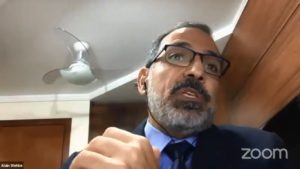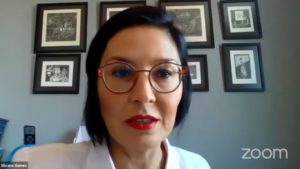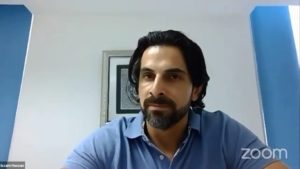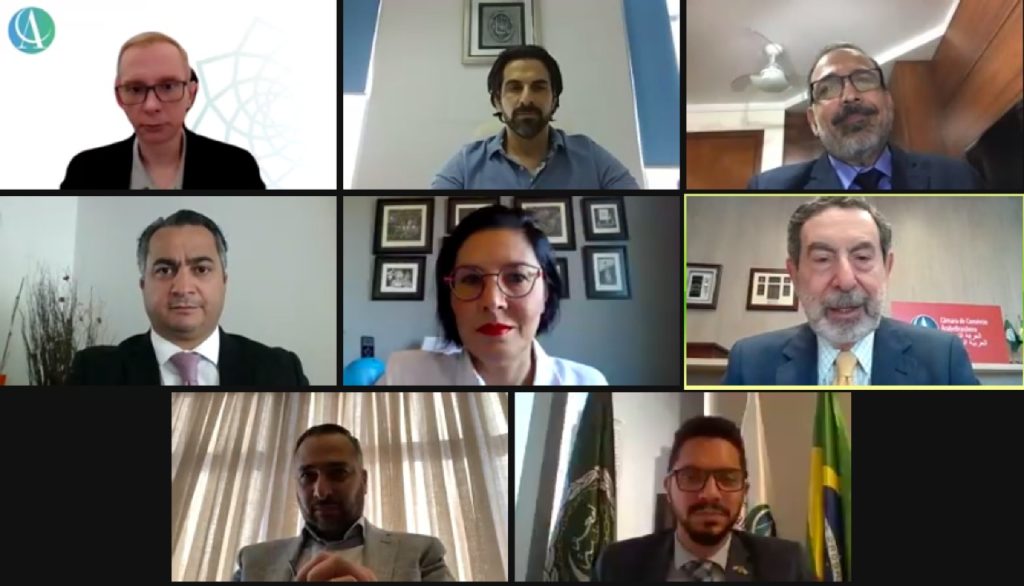São Paulo – In countries where vaccination is at a fast pace such as Saudi Arabia and the United Arab Emirates small retailers are investing strongly again, offering an opportunity for Brazilian exporting companies. This is what the experience of Alain Wehbe, export manager of the Brazilian food company Bauducco, shows. “Our products in Saudi Arabia are being sold quite a lot in candy stores. These are specialized stores, and they were closed for a long time [during periods of restrictive measures]. With the reopening of these small retailers, we had a big boost in sales,” he talked about the upturn of this niche.
Wehbe spoke during a webinar hosted by the Arab Brazilian Chamber of Commerce (ABCC), this Wednesday (5). However, the executive stressed that where vaccination is not making much progress yet, the situation is different. “In countries that are dragging behind, retailers are afraid of reopening, of purchasing, of ending up with debts and stocking up a product that has an expiration date. What will they do if they have to close again?” said the Bauducco trader.

An example is Lebanon, where Wehbe explains that retailers are very insecure and do not want to invest yet. “Traders [in Lebanon] haven’t bought containers for over two months, while the ones in Saudi Arabia, UAE and Qatar are so excited about the upturn that they are looking forward to buying,” he said.
The event’s moderator, Silvana Scheffel Gomes, Marketing & Content director at the ABCC, asked a question on categories of products that saw an increase in demand during the pandemic. “There is a trend to consume more sustainable goods, but is this actually happening? Is there a higher demand for more sustainable and organic products?” she asked another executive at the webinar, Issam Hassan, a Lebanese Brazilian businessman who has a trading company in the United Arab Emirates that markets Brazilian brands.

“We are certainly having a greater demand for organic, functional, and healthier products,” answered Hassan. According to him, this occurred mainly in the period with most trade restrictions, in which the highest demand was seen in supermarkets.
The executive recalled that in the case of the UAE, where the company is based, tourism-related businesses suffered the most. “Products sold in food service, restaurants and hotels had a tremendous decline, while we saw an increase in demand for items taken home by the final consumer,” explained the Lebanese Brazilian businessman.
For Tamer Mansour, secretary & CEO at the ABCC, the demand for these products is an opportunity to invest in processed goods. “This year needs to be a game-changer for value-added goods in the GCC,” he said during the conference.
In-person events
The UAE is, in fact, the spot of the comeback of face-to-face events. The head of the ABCC international office in Dubai, Rafael Solimeo, spoke about the activity on Arab soil. “One of the biggest events already took place this year, Gulfood, and it was very refreshing for the entrepreneurs who needed to negotiate and show their goods. At the fair, the corridors were wider, and security measures were in place. I was able to see that the country is ready to receive Expo 2020,” said he, who participated in the event.

Solimeo recalls that the organization of Expo 2020 even carried out a test. Areas for visitation were opened from January to April this year to see how everything will work. On the occasion, the event received a hundred thousand visitors and security measures were evaluated. In the Gulf’s events calendar for this year, there are also fairs such as Big 5, Index, and Beautyworld Middle East, in addition to Arab Health.
The main lecture of the event was given by EuroMoney Country Risk expert Helmi Hamdi, who focused on the situation in the UAE. The Market Intelligence manager at the ABCC, Marcus Vinícius, presented details of the research on consumer habit changest ushered in by the pandemic in the Arab countries. The survey was carried out by H2R Pesquisas Avançadas research institute and commissioned by the ABCC.
The president of the ABCC, Osmar Chohfi, also spoke at the conference, opening and closing the event. Tamer Mansour also announced an agreement signed between the ABCC and the governments of Qatar and Egypt, in the context of an entity’s blockchain project. The ABCC will soon announce new details about the agreement in the field of document digitalization. “It is the goal of this administration to enter with great emphasis in a new economy called economy 4.0,” finished Chohfi.
Read more about the event:
Mass vaccination makes upturn possible in the Arab market
The full webinar is available at the Arab Brazilian Chamber of Commerce’s channel on YouTube. Check out below:
Translated by Elúsio Brasileiro




